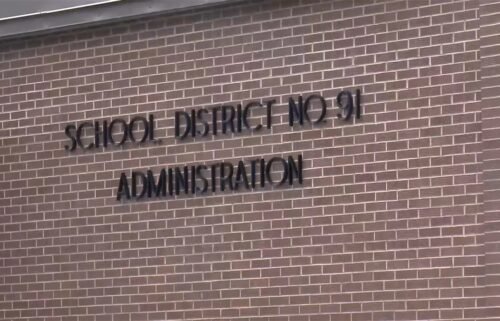Who's counting? A glimpse into the world of math teachers

Melinda Nagy // Shutterstock
Who’s counting? A glimpse into the world of math teachers
math teacher writing on board
Math teachers are currently among the most in-demand educators in the US, as reported by the U.S. Department of Education. Math teacher shortages are concerning given the impact teacher shortages have on student outcomes. Erica Jones, president of the Mississippi Association of Educators, highlighted to PBS the consequences of teacher shortages: schools struggle to offer a diverse array of classes, often eliminating advanced subjects like upper-level math.
“And students who can’t take those classes can’t demonstrate those skills to scholarships and colleges, putting them at a disadvantage for future prospects, compared to their peers whose schools offer those classes,” Jones said.
The potential impact of math teacher shortages on student achievement is a concern, especially as math scores have been on a decline for 13-year-old students in the 2022-23 school year. Compared to previous assessments in 2019-20, scores dropped from an average of 280 out of 500 points to 271.
In this article, Study.com examines the demographics of math teachers today and what may be driving this shortage.
Complementary data comes from the U.S. Department of Education, PBS, the International Commission for Mathematical Instruction, the Nation’s Report Card, the National Center for Education Statistics, and the UNESCO Institute for Statistics.
![]()
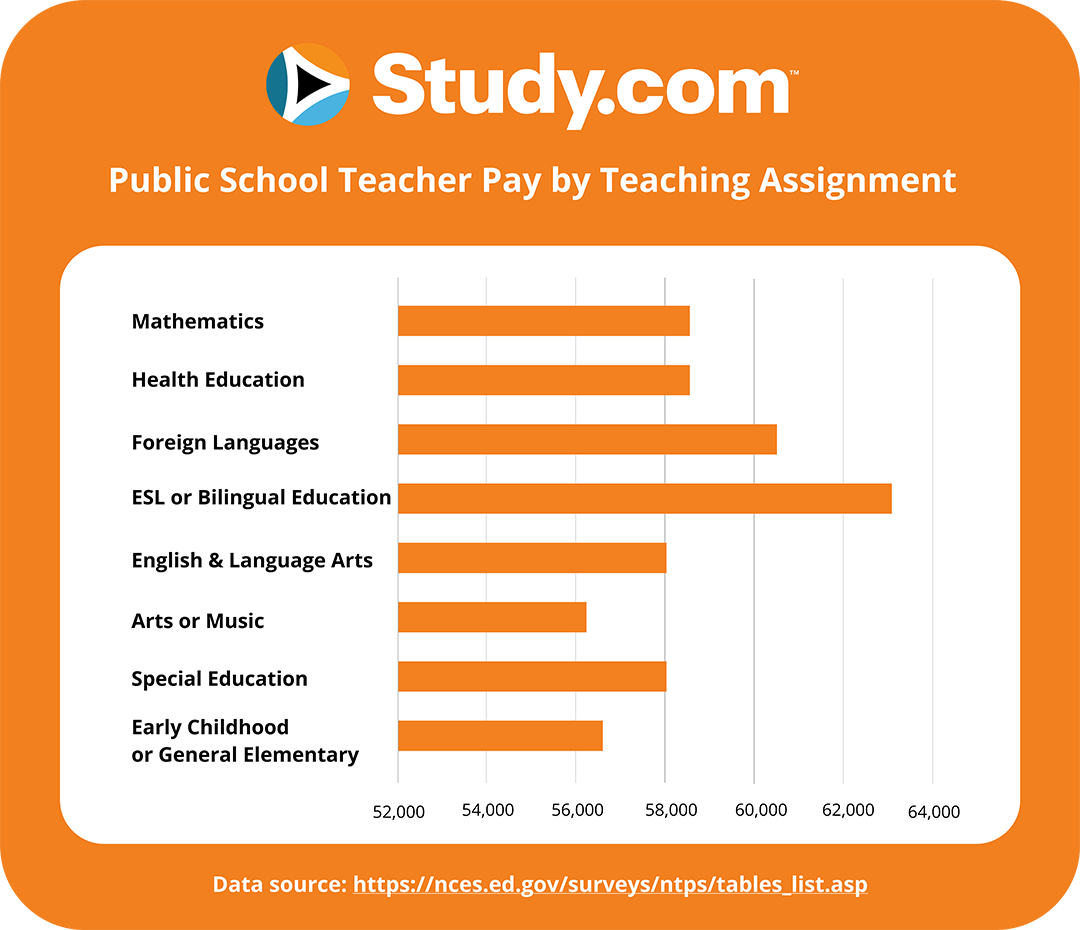
Study.com
Math teacher salary demographics
chart showing Public schoolteacher pay by teaching assignment
The average math teacher received a salary of ~$58,800 in the 2020-2021 school year. This is higher than the average for all teachers, ~$57,900, but lower than the salary of the average English as a Second Language (ESL) or foreign languages teachers, ~$62,800 and ~$60,600, respectively.
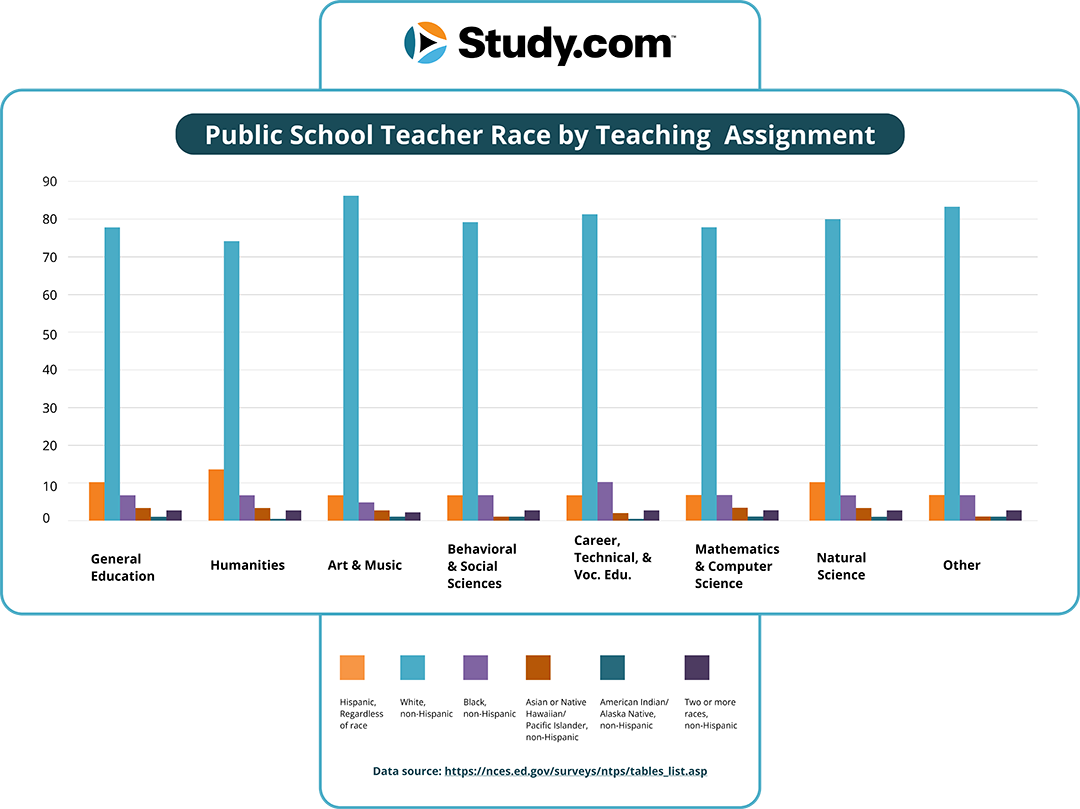
Study.com
Math teacher racial demographics
chart showing public school teacher race
79% of math teachers in the U.S. identify as non-Hispanic White. 7.5% of math teachers identify as Hispanic and 7.2% identify as Black. 3.7% of math teachers identify as Asian or Native Hawaiian/Pacific Islander, non-Hispanic, while 1.9% identify as two or more races, non-Hispanic, and 0.6% identify as American Indian/Native Alaskan, non-Hispanic.
Among all teachers in the U.S., 79% identify as non-Hispanic White, 9.4% identify as Hispanic, 6.8% identify as Black, 2.4% identify as Asian or Native Hawaiian/Pacific Islander, non-Hispanic, while 1.8% of math teachers identify as two or more races, non-Hispanic, and 0.5% identify as American Indian/Native Alaskan, non-Hispanic.
The differences in racial demographics between math teachers and other teachers are relatively minor. However, there are fewer Black and Hispanic math teachers compared to teachers in other subjects, and slightly more Asian teachers than in other teaching fields.
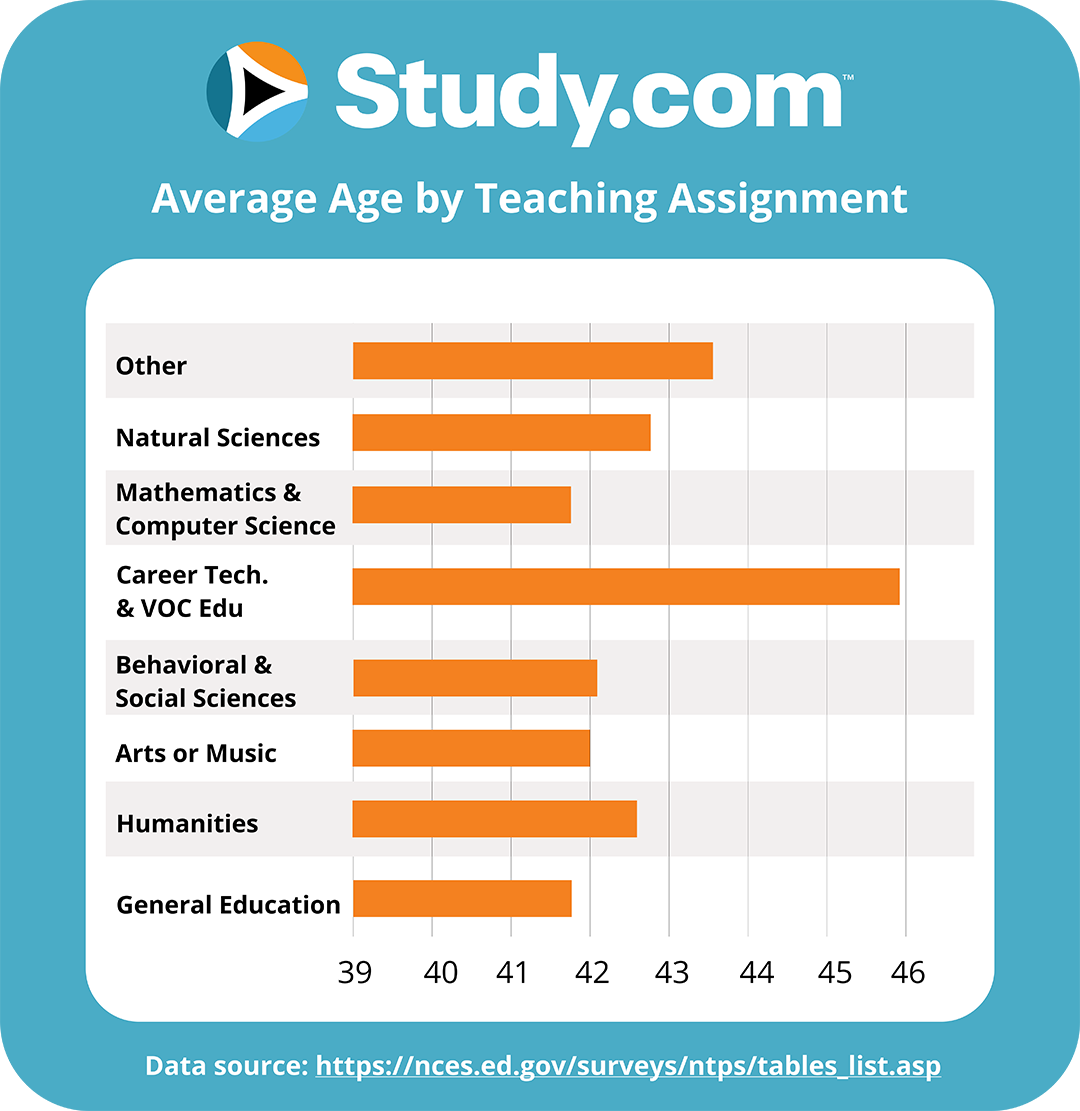
Study.com
Math teacher age demographics
chart showing average age by teaching assignment
The average age of teachers in both math and general education was 41 in the 2020-2021 school year. This is slightly lower than the ages of teachers in other subjects. For example, the average age of teachers in career, technical, and vocational education is just under 46, while the average of teachers in natural sciences and arts and music is 42.
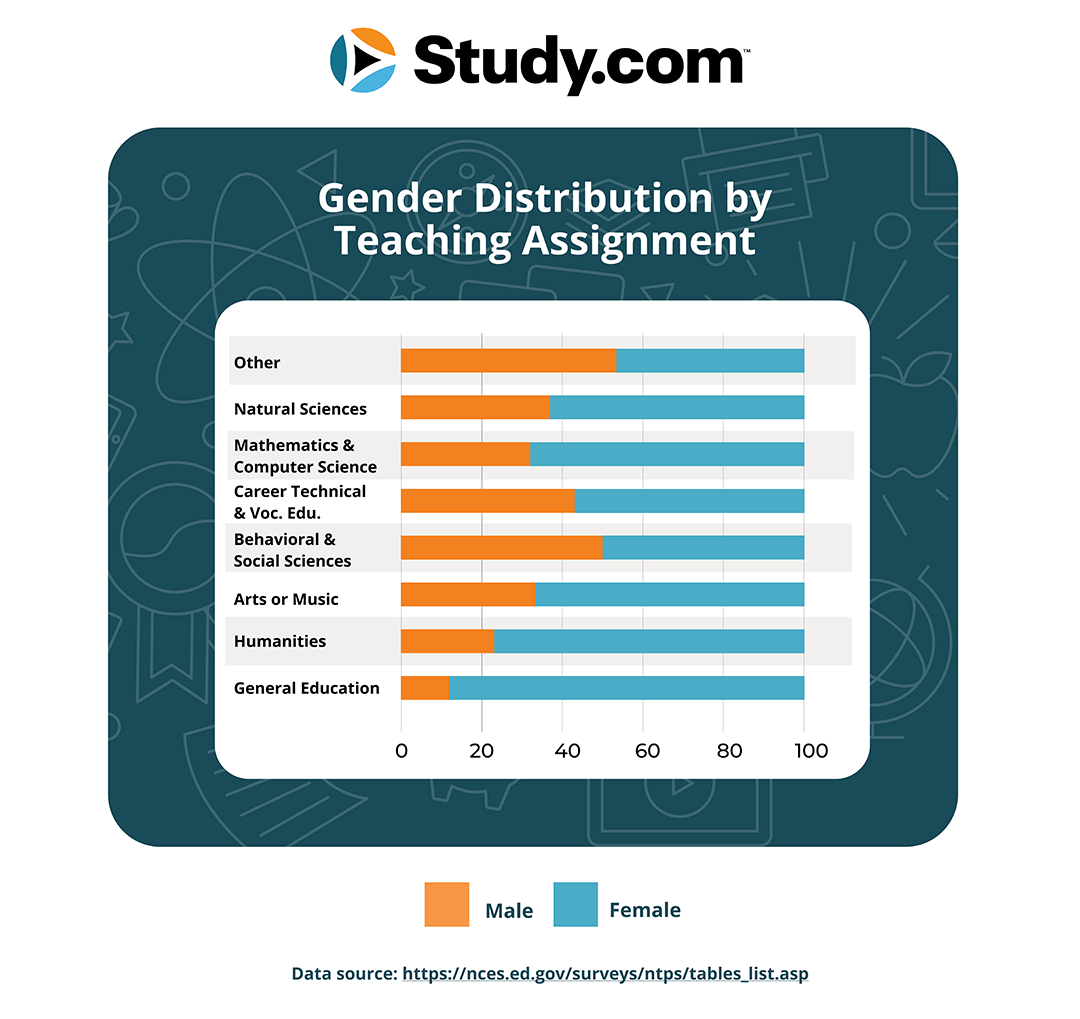
Study.com
Math teacher gender demographics
chart showing gender distribution by teaching assignment
34.9% of all math teachers in the U.S. were male while 65.1% were female in the 2020-2021 school year. The ratio of female and male teachers varies depending on the subject. For example, 10.4% of general education teachers are male, 89.6% are female. On the other hand, behavioral and social sciences teachers are more even in terms of gender, where 49.2% are male and 50.8% are female.
The two subjects with differences most similar to the ones found in math are arts, music, and natural sciences. 32.5% of arts and music teachers are male, compared to the 67.5% of teachers who are female. Meanwhile, 37.0% of natural sciences teachers are male and 63.0% are female.
The rising demand for math teachers
According to the UNESCO Institute for Statistics, 69 million teachers will be needed to provide quality universal primary and secondary education by 2030. This need is highlighted in school districts like the West Bolivar Consolidated School District in the Mississippi Delta, where every student is eligible for free and reduced lunch. Schools in this district are experiencing such a significant teacher shortage that they are sharing teachers for multiple subjects. That is, a teacher may teach at one school on one day and another school the next.
The primary reasons for teacher shortages in the U.S. include retirements, and departures from the profession due to factors such as worsening working conditions, increasing workload, and low pay. There has also been a decline in interest in teaching as a profession.
Adding to these challenges, math and science teachers face unique factors that contribute to even higher attrition rates compared to other subjects. Research shows that math and science teachers encounter more issues with student discipline and experience a sense of imbalance between effort and reward, which can lead to teacher burnout.
As Mississippi Association of Educators’ president Erica Jones said, students suffer when districts can’t find teachers. Teacher shortages put schools in the position of having to offer a smaller variety of classes and sometimes even having to cut advanced subjects, like upper-level math. This puts students in a disadvantaged position where they may not be able to qualify for the same scholarships or be at the same academic level as their peers whose schools do not experience this kind of shortage. These consequences of teacher shortages are more likely to occur in schools where more students belong to communities of color.
This story was produced by Study.com and reviewed and distributed by Stacker Media.





